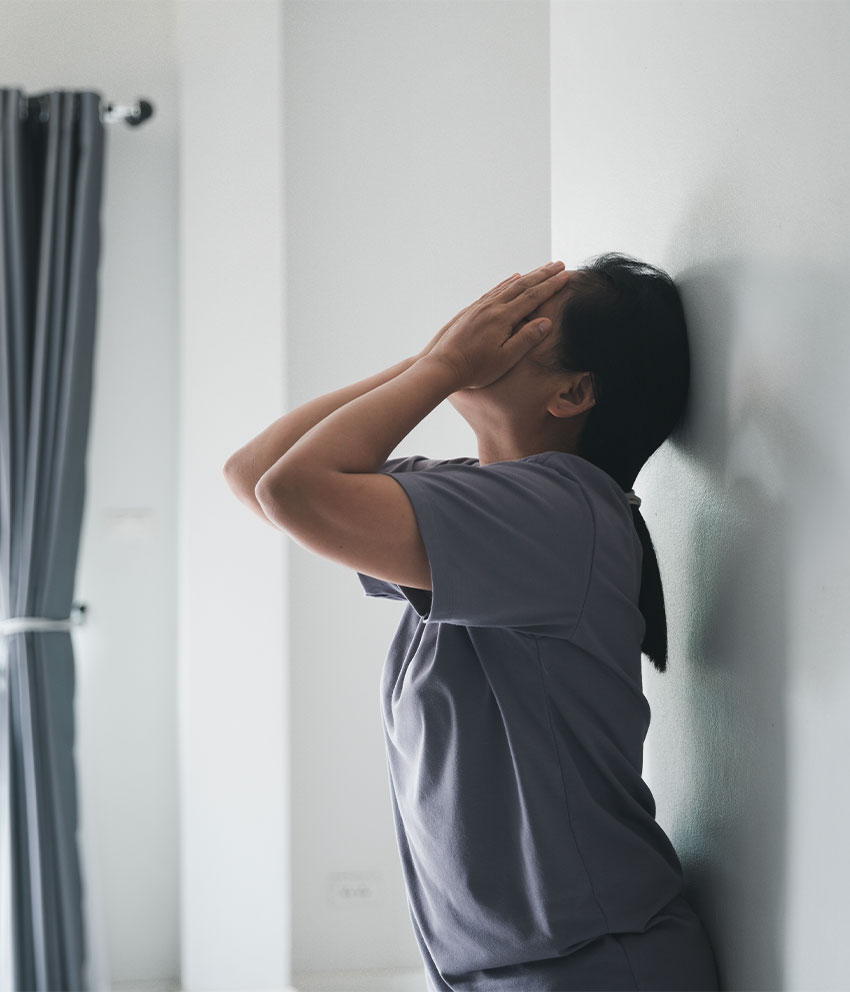Cognitive behavioral therapy in the treatment of anxiety disorders
Cognitive behavioral therapy in the treatment of anxiety disorders
When you are often afraid, it can cause daily inconvenience. You may also find that you can no longer function well, such as at work or school. Anxiety symptoms can then turn into an anxiety disorder.
Fortunately, there are effective ways to get rid of this. For example, scientific research has shown that cognitive behavioral therapy works for anxiety disorders. We would be happy to tell you more about this.
What is an anxiety disorder?
Everyone is afraid of something or is tense at times; this is quite normal. But when the anxiety is too high in relation to the danger – or when the anxiety is intense and so frequent that it affects you – we speak of a disorder.
There are different forms of anxiety that can occur. Examples include: social anxiety, panic disorder, specific phobia (e.g., of spiders) or generalized anxiety disorder (which is also called the brooding disorder), etc.
What is cognitive behavioral therapy?
This form of therapy has two parts: behavioral therapy and cognitive therapy. Cognitive behavioral therapy thus addresses both your behavior and your thoughts that make and keep you anxious.
Behavioral therapy focuses primarily on changing your behavior to overcome anxiety. People with anxiety disorders avoid that which they fear. This is a logical reaction which also helps in the short term because it makes you less afraid. In the long run, however, this behavior perpetuates your anxiety by preventing success experiences. Eventually, avoidance behaviors can cause your anxiety to persist or even increase.
In behavioral therapy, you learn step by step – under professional guidance – to expose yourself to the things you fear. In doing so, you will find that the anxiety will slowly diminish and you will start daring and doing more again.
Cognitive therapy is about your way of thinking. Often people with anxiety disorders think negatively and are preoccupied a lot with what they fear. But by no means are these thoughts realistic.
During treatment, these types of thoughts are explored, usually by keeping a journal. This makes you more aware of your thoughts. Also by experimenting with your behavior, you learn to test thoughts; is what you are thinking correct? You will learn to change the negative thoughts under the guidance of your therapist. This is how you arrive at thoughts that help overcome your fears rather than perpetuate them.

At GGZonline, we offer specialty mental health services.
Actively getting started with cognitive behavioral therapy
With cognitive behavioral therapy, the therapist works closely with you to achieve improvement in your symptoms. It is an active method of treatment, where you are actively engaged during the sessions, as well as given homework assignments to do at home.
Treatment is problem-oriented and therefore generally short, ranging from 10 to 20 sessions. The goal of therapy is to reduce your anxiety symptoms so that you can function satisfactorily again.
Cognitive behavioral therapy is recommended as the first choice for the treatment of anxiety disorders. The effects vary from person to person, but roughly about three-quarters of patients benefit from this treatment.
Online cognitive behavioral therapy
Treatment via video call has been proven to be just as effective as on-site treatment. With the expertise and vast experience in online treatment, the therapist gives you the same confidence as in the treatment room, but at a distance.
With online therapy, we help you from your familiar surroundings, from home or any other location. This way, you can work quickly on your recovery, and care does not have to be interrupted if something occurs that prevents you from leaving your home.
You are welcome to GGZ online
Are you struggling with anxiety symptoms that you would like to get rid of? Then contact us today through our website. You are also welcome if you have a question or would like to consult with us without obligation.
Sign up today or get a quick call back
Could you use some help? Have us call you back for a no-obligation online consultation or sign up directly using the buttons below.

